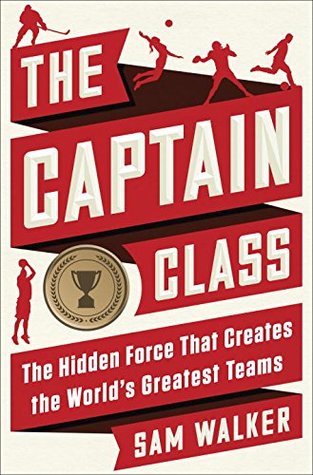
Book Review – The Captain Class
The Premise
Imagine if someone went through the history of all modern sports to the rank teams that had the greatest dynasties. Then, finding the common elements making them so amazing.
That’s what Sam Walker did in his book The Captain Class.

This was no easy feat. The first step is to develop a stringent criteria:
- How is a ‘team’ defined?
- 5 of more members – this eliminates sports such as doubles tennis and Olympic beach volleyball
- Members interact with the opponent – this excludes sports such as rowing, team cycling and synchronised swimming
- Members work together – filtering out sports such as gymnastics and Olympic wrestling
- How to separate great teams from good teams?
- Play a major sport i.e. Olympics or World Cup – not an obscure regional sport with a modest fan base and limited talent pool
- Play against the world’s top competition – “To be the best, you have to beat the best.”
- Dominating over at least 4 years – great teams do not regress to the mean
- (At this point only 122 teams survived from criteria 1 and 2) How to separate great teams from a once-in-multiple-generations team?
- Sufficient opportunity to prove themselves – political interference is an example of possible cause of disqualification
- Record stands alone – accomplishments / performances / wins that go beyond every other team that played in the same sport
The Captain Theory
Only 16 teams made the cut, and from there an extensive analysis on the commonalities between each of those team began. Some theories which were ruled out include:
- Statistical dominance
- Superstar talent
- Consistent and excellent coaching and management
- Stable roster
However the the qualities shared between all of the teams Captains were eyebrow raising, especially the correlation between the success of teams and the time of arrival / departure of the team’s internal leader.
Most of these traits goes against the grain of the archetypal ‘model captain’.
7 traits of Elite Captains:
-
Extreme doggedness and focus in the competition
- The presence of a person who leaves no doubt they are giving everything they got prevent social loafing
- Rarely the superior athlete, the captain demonstrates their commitment through conditioning and preparation
-
Aggressive play that tests the limits of the rules
- These captains often intentionally push the rules to the breaking point, not necessarily playing with ‘sportsmanship’
- Captains were more concerned with winning than their perceived external image, which meant harnessing ‘instrumental’ aggression in the pursuit of a worthwhile goal
- In constrast to ‘hostile’ aggression with the intention of harming
-
A willingness to do thankless jobs in the shadows
- Water Carriers – rarely the stars of the team, gravitating to more functional roles which bring little attention onto themselves
- The easiest way to lead is to serve – lowering themselves in relation to the team to earn moral authority to drive them forward
-
A low-key, practical, and democratise communication style
- Lead teams without fanfare whilst often being lousy interviewees and considered quiet or inarticulate by those outside of the team
- Fosters a culture within the team where each voice is heard and both verbal and non-verbal communication is constant within the team
-
Motivates others with passionate nonverbal displays
- Tier one captains tend to do dramatic, bizarre and sometimes frightening things during or right before an important competition
- These acts leverage the idea of emotional contagion which are non-verbal cues that allow the team to make deep, powerful, fast-acting emotional connections
-
Strong convictions and the courage to stand apart
- Acts of courage – captains of the greatest teams habitually defy and dissent against team executives or teammates for the better of the team
- Engaging in ‘task conflict’, not ‘personal conflict’, intending on fixing or improving the way affairs are conducted, avoiding emotional hatred or dislike of others
-
Ironclad emotional control
- Captains were not only playing through personal setbacks but excelled during them, walling off destructive emotions in serving the interests of the team
- Developing a kill switch – imbued with or learnt the ability to finely regulate emotion